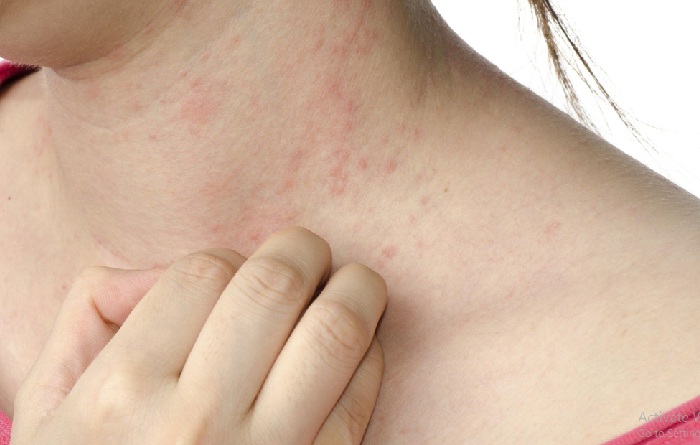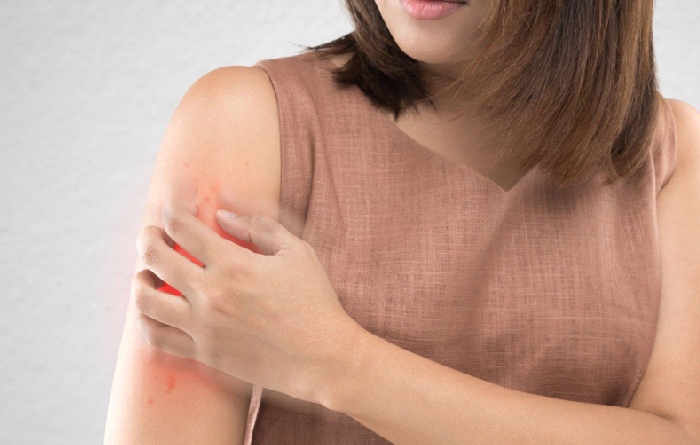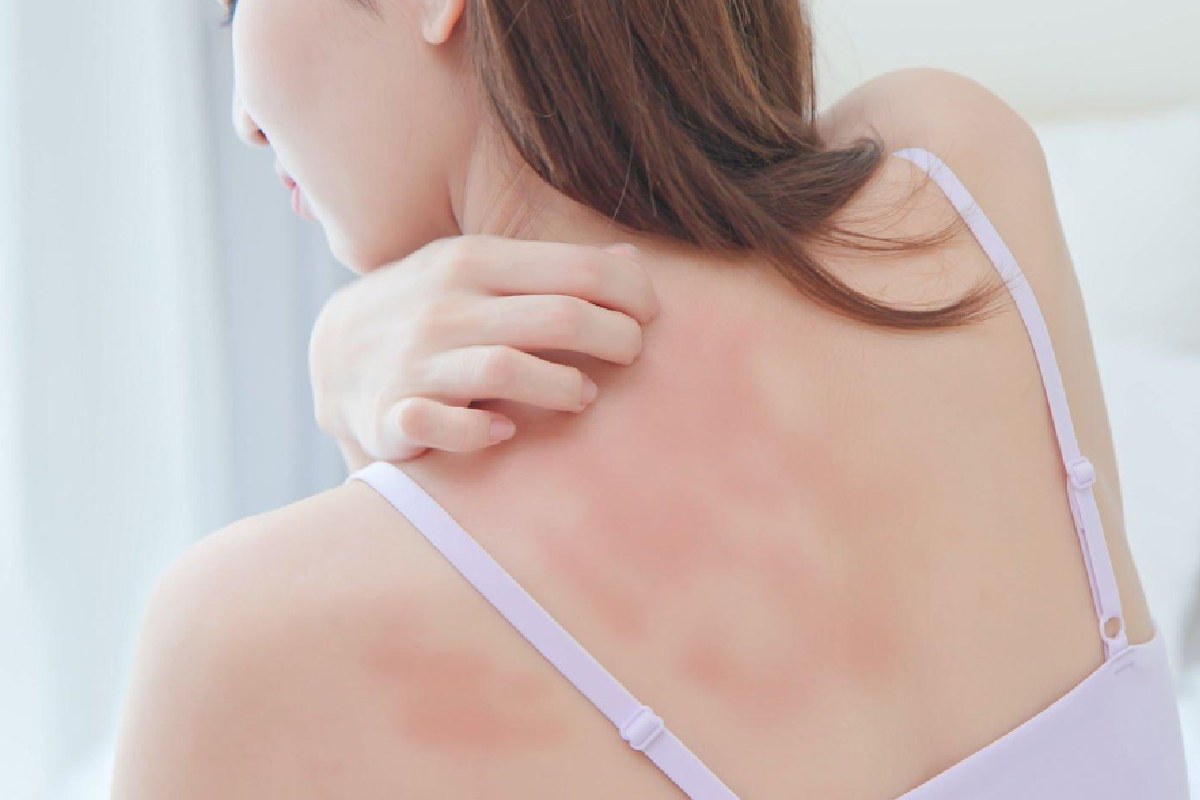Dermatitis: What is it, Symptoms, Causes, Prevention, and Treatment – Daily stress, the effects of the sun’s rays during the summer, and continuous friction with clothing can lead to a person suffering from skin irritation or dermatitis.
Once this pathology has known, special attention must make happy to counteract its effects. It is also essential to better understand what causes it to prevent it.
Fortunately, some treatments are nearing extinction by medical insurance that helps restore the skin’s natural balance in some cases, though in others, it only calms the symptoms. Precisely, when dealing with this topic, the aim is to guide how to avoid this annoying skin condition or how to treat it if you already suffer from it.
Table of Contents
What Is Dermatitis

Dermatitis, also known as eczema, is irritation of the superficial layers of the skin, which can cause itching, blisters, redness, swelling, then sometimes crusting and peeling.
It is a common disorder with many causes and presents in many forms. Although it is not contagious, it can cause discomfort to the sufferer.
Types Of Dermatitis
Dermatitis could into four types, which are:
- Atopic. It is a disorder that causes itching and redness of the skin. Can occur in both broods and adults. It is long-lasting and tends to be frequent.
- Contact. It is a reddish skin rash that itches, and as its name indicates, it appears due to direct contact with substances such as soaps, cosmetics, perfumes, and plants or an allergic reaction to them.
- A diaper is a common form of skin inflammation that appears as bright red spots on the baby’s buttocks.
- Seborrheic. It is a skin complaint that mainly affects the scalp, face, nose, eyebrows, ears, eyelids, and chest. It can cause scaly patches, reddened skin, and persistent dandruff.
What Causes Dermatitis?

The primary drive of the skin is to defend the body from external substances that are harmful to health. Now, dermatitis is a consequence of the reaction of this barrier, producing inflammation of the skin.
According to dermatologist Jorge Szot, “dermatitis can be produced immediately by contact with some substances that irritate, such as chlorine, or gradually when we are repeatedly exposed to some agents such as nickel metals.”
Dermatitis can be the result of several factors, such as:
- Contact dermatitis. It by an allergic reaction between the skin and an irritating agent.
- Atopic dermatitis. It happens when the patient’s body is sensitive to food, allergens, or environmental factors.
- Seborrheic dermatitis. Its cause is currently unknown.
- Diaper dermatitis. It is related to wet diapers, skin sensitivity, and diaper chafing.
Dermatitis Symptoms
Each type of dermatitis can present a particular set of signs. Symptoms of the different types of dermatitis include:
- Atopic. In the case of babies in scalp and face. Can present a red rash and itchy skin; it is chronic and usually appears with different symptoms: itching, dry skin, red or brown spots, scaly skin; it is common on hands, elbows, knees…
- Contact. This red, itchy rash on the area of skin that came into contact with irritants can also blister.
- Seborrheic. It can cause scaly patches, skin redness, and persistent dandruff, primarily on the face, upper chest, and back.
Diagnosis Of Dermatitis
The diagnosis of this disease on the symptoms, appearance, and location of the rash on the body. Dermatologists try to determine if the patient has ingested or applied any chemical to the skin, if they have any allergies, or if they have an infection.
To tests are carried out, such as the patch test, where the doctor applies small amounts of different substances to the skin and then covers it; after observing the reaction, the specific types of allergies that cause dermatitis can identify.
Other alternatives are instructing the affected person to test the suspected product on a small skin area to observe the reaction, perform blood tests, or take skin samples and send them to a laboratory for biopsy.
Preventive Measures To Avoid Dermatitis
Dr. Carmen D’Amelio Garófalo, a specialist at the Navarra University Clinic, comments: “Some agents are specific to the individual and conditioned by the genetic load. Others are habit or environmental factors, among which allergens play an important role, mainly because they can cause outbreaks.
As there are both genetic and external factors that influence dermatitis, specialists recommend a series of simple guidelines for its prevention and to mitigate its consequences, such as:
- Good hydration. To the extent that the skin as possible, it will be less likely to be affected. It must achieve by using fragrance-free substances and avoiding known allergens and irritating substances.
- Take short baths. Not affect the frequency of bathing, but its duration. The towel should without rubbing the body too much when drying.
- Wear appropriate clothing. It is advisable to use preferably cotton clothing.
- Avoid extreme temperatures. Both the cold and severe sweating from the heat increase the possibility of suffering from dermatitis or worsen its symptoms.
- Use appropriate bath gel. They are usually indicated for sensitive skin and with skin problems and gently cleanse the pores in depth while respecting the skin’s pH.
Dermatitis Action
Because of this treatment of dermatitis differs depending on the cause and the specific symptoms. So many dermatologists recommend administering moisturizers or corticosteroid creams to relieve itching; in other cases, oral antibiotics or injections of certain medicines may set.
On the other hand, the treatment of dermatitis, depending on the type that suffered, could include:
- Atopic. Although no final cure has for this disease, you can regularly moisturize your skin and apply corticosteroid creams or medicated ointments to alleviate its symptoms.
- Contact. After identifying and avoiding the cause of the reaction, the skin can make happy with cool, wet compresses, anti-itch gels, and creams.
- Seborrheic. Some light fluids used on skin with seborrheic dermatitis allow regulating the formation of fat, preventing the proliferation of fungi and bacteria.
Dermatitis is undoubtedly an annoying condition that can prevent, but if you suffer from it, it is possible to find relief by applying specific measures and receiving appropriate medical treatment.

